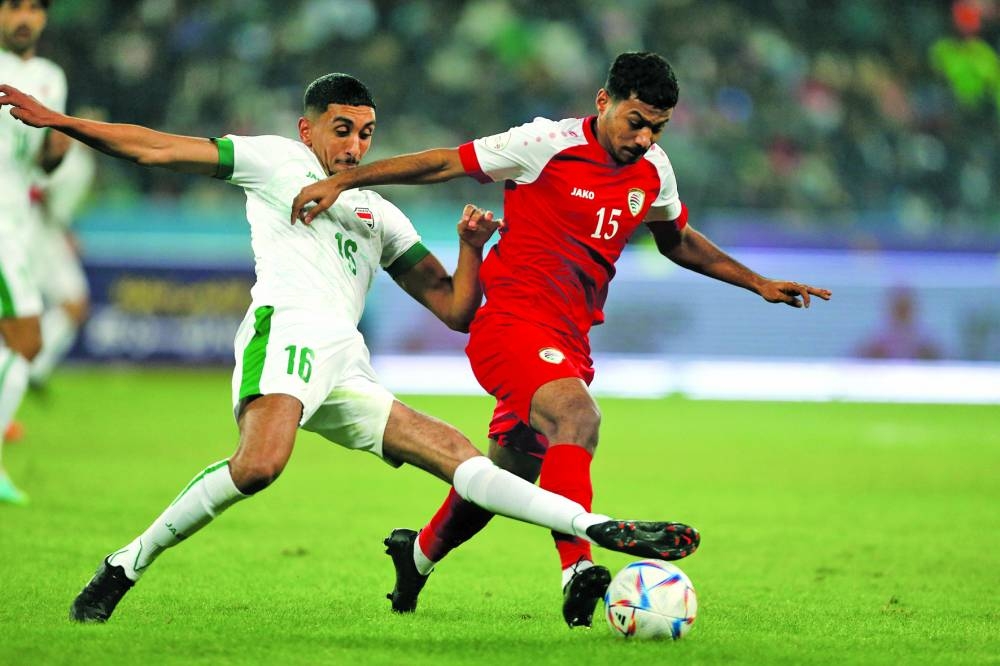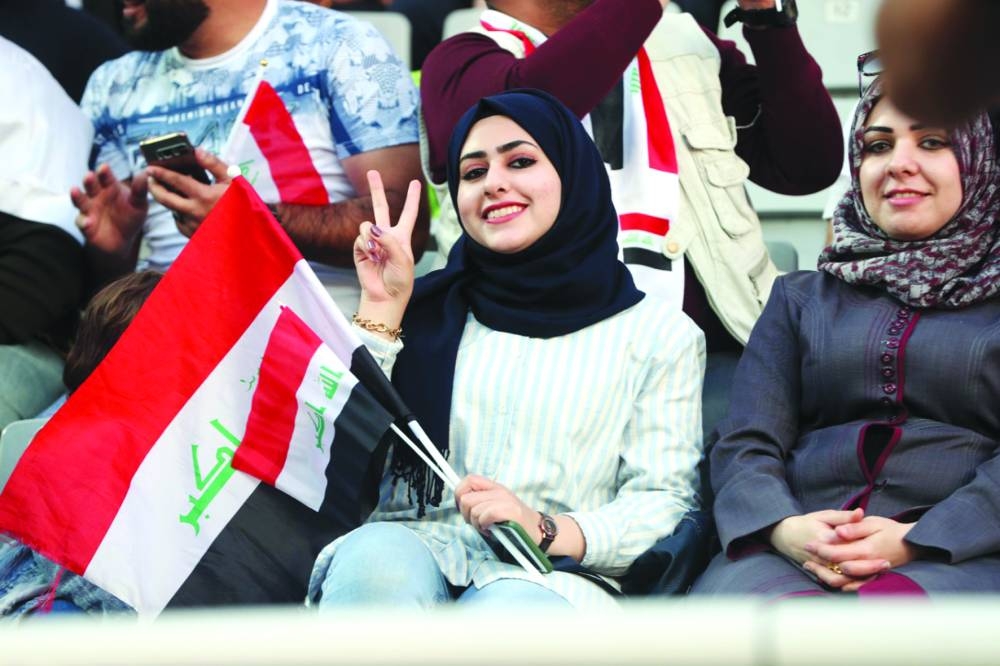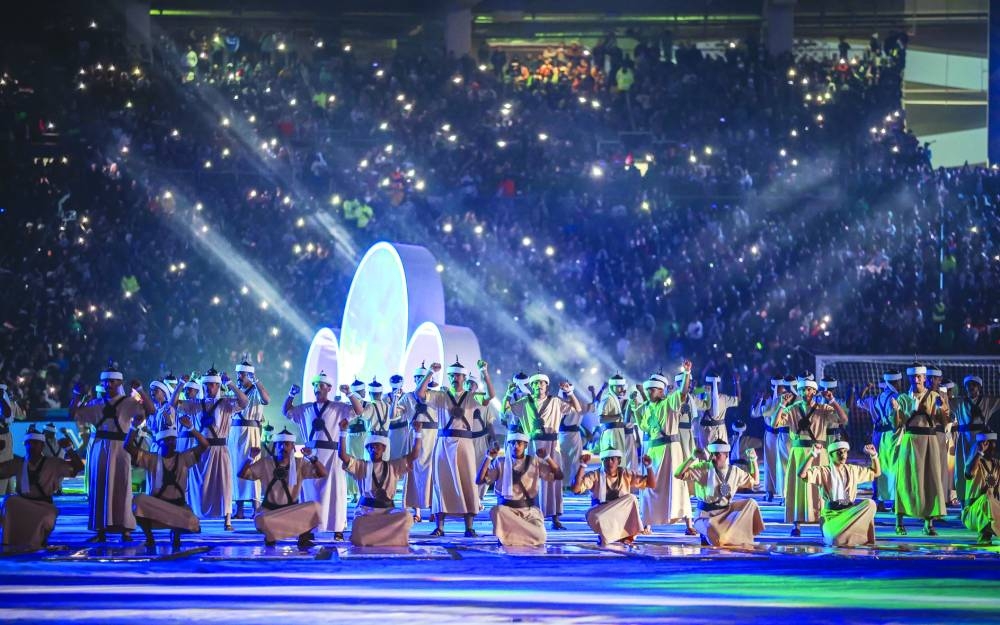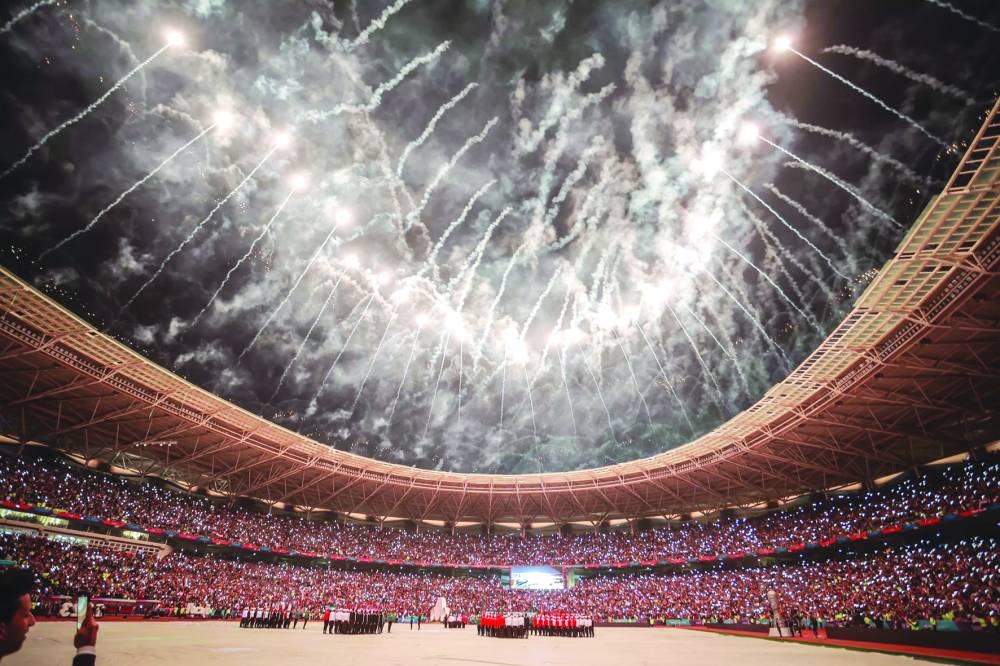Hosts Iraq and Oman played a goalless draw as the 25th Arabian Gulf Cup kicked off at the Basra International Stadium yesterday. After a grand opening ceremony, which showcased the history and heritage of Basra and Iraq, the hosts were frustrated by Oman in front of 65,000 raucous fans.
Iraq controlled the match in first half but were unable to make a breakthrough. Oman grew into the game in the second half and created several scoring opportunities but failed to find the net. Iraq continued to pressure Oman with Ayman Hussein’s header in the 54th minute missing the post by a whisker, while Dhurgham Ismail hit the crossbar in the 88th minute.
Earlier, the tournament was opened by Iraq Prime Minister Mohamed Shia’ al-Sudani after a grand opening ceremony with performances from Hussam al-Rassam, Rahma Riad and other Iraqi artists. Qatar Olympic Committee president HE Sheikh Joaan bin Hamad al-Thani attended the ceremony along with Arab Gulf Cup Football Federation and Qatar Football Association president HE Sheikh Hamad bin Khalifa bin Ahmed al-Thani and FIFA chief Gianni Infantino.
The tournament ends nearly three decades of repeated bans on international matches in the war-torn and corruption-plagued country, which is hosting Gulf Cup after 44 years having hosted the inaugural edition in 1979, the same year Saddam Hussein seized power in Baghdad.
Decades of turmoil followed with the 1980-1988 war against Iran, Iraq’s 1990 invasion of Kuwait and the subsequent Gulf War, the US-led invasion of Iraq in 2003 and a bloody sectarian civil war lasting from 2006-2008.
The invasion of Kuwait saw Iraq banned by FIFA, world football’s governing body, and subsequent sporadic bans were imposed until early 2022 due to instability in the country. Iraq was scheduled to host the competition in 2014 but it was moved to Saudi Arabia due to security concerns. The southern port city of Basra is hosting eight West Asian teams – Qatar, Bahrain, Kuwait, Oman, Saudi Arabia, the United Arab Emirates and Yemen. More than 10,000 foreign fans had arrived by the afternoon in the city, located a short distance from Iraq’s borders with Kuwait and Iran, an official from Basra’s provincial government told AFP.
Flags of the participating countries fluttered in the breeze at Basra’s corniche, which runs along the Shatt al-Arab river, and the scent of shisha wafted from coffee shops. Omar Badr, a 22-year-old from Kuwait, was enthused by the local hospitality. He said some restaurants have offered fans free meals “and people invite us to their homes”.
Three decades after the Kuwait invasion, Iraqis are now enthusiastically welcoming their neighbours. Mohamed al-Azemi, a 39-year-old football fan from Kuwait, said “social and family ties” unite the two countries. “The brotherly relationship between (us)... is back on track.” Louay Mansour, a nurse from Basra, said: “God be praised, the Gulf Cup is back. We hope it will be crowned with success.”
Tournament organisers have undertaken major infrastructure projects to help Iraqis forget their years in the football wilderness. Basra is now home to two stadiums: the 65,000-capacity International Stadium, opened in 2013, and the 30,000-seat Al Minaa Olympic Stadium, inaugurated just two weeks before the tournament.
The city has had a makeover, with renovations to the corniche, new hotels built and streets repaved. In total, Baghdad allocated $33mn to the Iraq Football Association to organise the Gulf Cup. Locals including taxi driver Mohaned Abdelaziz expressed hope that the event would generate “positive economic spinoffs and... create jobs”.
Basra province is rich in oil, yet sees high unemployment and shortages in public services like electricity and clean drinking water – all exacerbated by the devastating effects of climate change. Iraq suffers from dilapidated infrastructure and rampant corruption, ranking near the bottom of Transparency International’s corruption perceptions index, at 157 out of 180 countries.
For Abdelaziz, a father of four, “the expenses for the preparations (of the tournament) are surprising”.
“What we need is housing and public services,” he said.
Sport
Iraq held by Oman in opener as Gulf Cup kicks off in Basra
The tournament ends nearly three decades of repeated bans on international matches in the war-torn country

Iraq’s Amir al-Ammari (left) and Oman’s Musab Hamad al-Maamari vie for the ball during the opening match of the Arabian Gulf Cup at the Basra International Stadium on Friday.


Artists perform during the opening ceremony.

A crowd of 65,000 fans turned out for Iraq’s match against Oman at the Basra International Stadium on Friday.

Fireworks explode during the opening ceremony of the 25th Arabian Gulf Cup at the Basra International Stadium on Friday.
